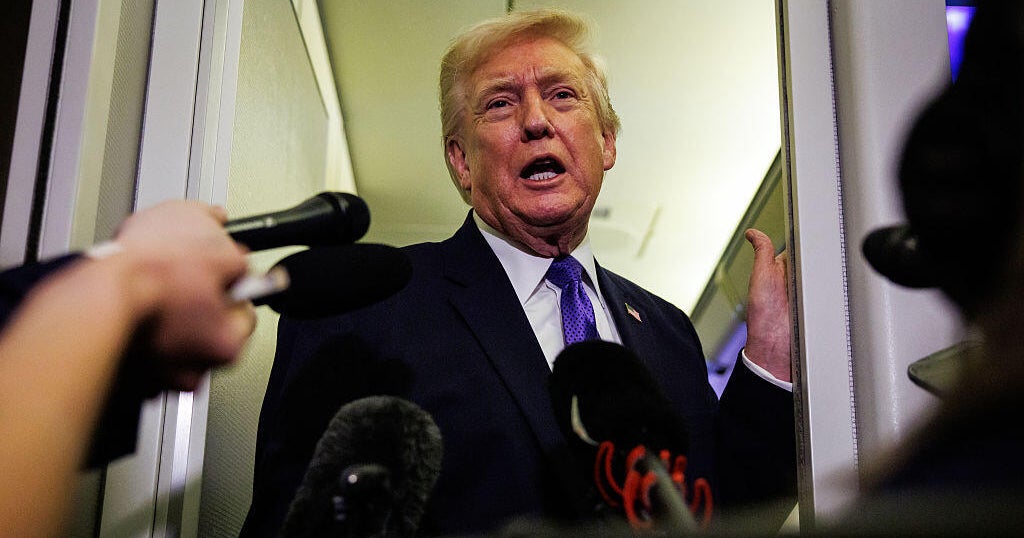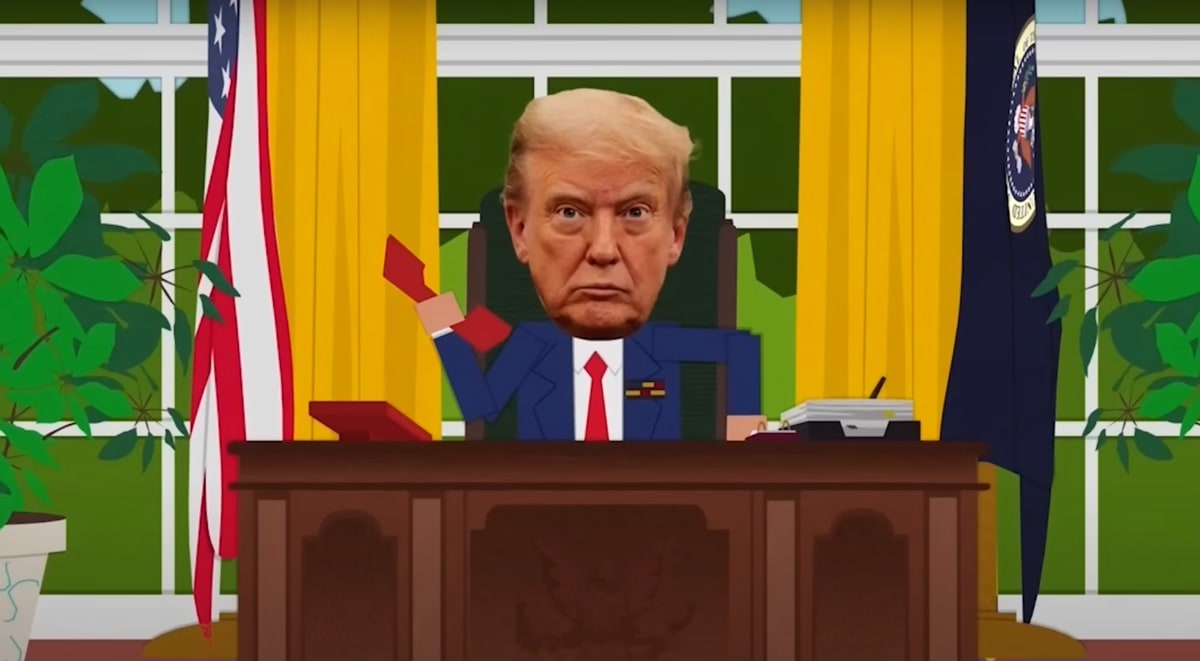Transcript: Scott Gottlieb discusses coronavirus on "Face the Nation," January 3, 2021
The following is a transcript of an interview with former FDA Commissioner Scott Gottlieb that aired January 3, 2021, on "Face the Nation."
MARGARET BRENNAN: We want to go now to former FDA commissioner Dr. Scott Gottlieb. He's also on the board at Pfizer and he joins us from Westport, Connecticut. Good morning to you.
DOCTOR SCOTT GOTTLIEB: Good morning.
MARGARET BRENNAN: You've said January is going to be the hardest month. I'm- I'm looking at this slower than expected rollout and this new strain of coronavirus. Does all of this come together to mean that the peak will be extended, that this is going to be painful for a longer period?
DR. GOTTLIEB: It's possible. You know, we were hoping that we'd have more injections in people's arms at this point and the vaccine could be starting to have an impact on the trajectory of the epidemic. And the new variant certainly creates more risk that this epidemic peak could get extended. We're going to see the epidemic probably peak at some point this month, hopefully earlier in the month. I mean, that was the original estimates and the original modeling. But the lag in terms of the effect on a health care system is going to be about three weeks. And so the health care system is not going to see maximal resource utilization told closer to the end of the month. And that's when we're likely to see the peak number of deaths on a daily basis as well. So we still have a ways to go with this current surge of this epidemic until we start to see cases decline, hospitalizations start to decline and hopefully deaths start to decline. A new variant does create a lot of risk, however, that we start to see accelerated spread.
MARGARET BRENNAN: What new risks? Dr. Slaoui said that it seems the vaccines do work against it. What risks are you seeing?
DR. GOTTLIEB: Well, we're not vaccinating quickly enough to create a backstop against the spread of this new variant. Right now, there's some estimates that the new- new variant probably represents about 1% of all infections in this country. By March, it's going to be the majority of infections. It's going to grow quickly. And so one of the- the real key to controlling this new variant is to control the epidemic. That means doing the things that we've been doing, mask wearing, social distancing, but it also means getting more people vaccinated quickly. I think that the- the existence of this new variant that spreads more readily really creates more urgency around trying to get this vaccine out more quickly and get more people vaccinated, even if it's a more general population. There's a lot of excess demand for the vaccine right now, particularly in the elderly population. I think we ought to think about moving quickly through these phases that we've delineated and move more quickly into a general vaccination program for those 65 and above.
MARGARET BRENNAN: I thought it was interesting. Governor Hutchinson sort of leaned into that concept, saying they were looking at what the governors of Florida and Texas have done with making this available to other age populations at this point. Would you ask of- other governors to do that? Because Governor DeSantis was really kind of hit hard by, you know, images of long lines of older people waiting. It didn't seem to be moving quickly in terms of vaccinations, though he widened the number of people who qualify for it.
DR. GOTTLIEB: Well, I think we can have a dual strategy here where we continue to prioritize certain hard to reach communities and have public health departments focus on that mission. And they're uniquely skilled to do that mission and then make the vaccine more generally available through the retail pharmacies, through Walmart and Walgreens and CVS, to a broader population, to a general population starting with age. We can walk it down the continuum, make it available for 75 and above first, then 70 above, then 65 and above. There's 50 million Americans 65 and above, a large percentage of them probably want to be vaccinated. At some point, we need to allow supply to meet demand here and get the- the shots into the arms of the people who really want to get vaccinated and are going to go out and seek out the vaccination. If we're pushing it through the retail pharmacies, you're not going to see the long lines. They're going to have a scheduling system in place and it's going to be a more orderly distribution. And then, commensurate with that, we can have the public health departments focusing on the critical mission of going into homes, reaching harder to access communities, people who are more reluctant and need a little bit more encouragement to get vaccinated. That's someplace where the public health establishment can really focus on a discernible mission.
MARGARET BRENNAN: But explain that because you have Operation Warp Speed saying it is working with the private sector. You had the gov- the governor of Arkansas saying they are working with the private sector. Are you saying that the private sector should just take it over at this point?
DR. GOTTLIEB: Well, look, we've- we have 40 million vaccines that- that were delivered in December. Five million were injected into arms. That's 35 million vaccines sitting on a shelf somewhere. I'm saying that we can be delivering these vaccines directly to Walmart and Walgreens, and in New Jersey they're shipping them through ShopRite, and allow these retail establishments to start opening up more general vaccination programs for the broader public instead of working very slowly through these preordained phases that we've articulated. Continue to- to accomplish that mission because it's important, but also take some of this excess supply and push it through a retail channel to the general public. If someone who is 70 years old or 65 years old wants to schedule an appointment at CVS to get a vaccination, they should be able to do that this month. So, I think we should start working through the age brackets and just work our way down until we work off some of the supply. There's more vaccine coming on the market every day. We're going to have a significant backlog right now or, you know, warehouse inventory of vaccines. And that's tragic because these could be accomplishing an important public health purpose,
MARGARET BRENNAN: Right, well because Operation Warp Speed is already stockpiling half- more than half of the supply that they have. What about vaccine hesitancy, the- the governor of Ohio said 60% of nursing home staff members offered the vaccine in his state declined it. You're seeing similar hesitancy elsewhere. These are medical personnel and health care staff and they're saying no.
DR. GOTTLIEB: Yeah, look, that's another reason to be making this more generally accessible. It is a reality that some people aren't going to want to get vaccinated, or are going to be reluctant to get vaccinated. It is going to take more work. There's about 150 million Americans who get vaccinated for flu each year. About 60 million of them are under the age of 15. So that's about 90 million people who get vaccinated for flu. I think that's your low hanging fruit for getting COVID vaccinations out. Some high proportion of the people who get a flu vaccine are also going to get a COVID vaccine. If we just simply make this generally accessible to 65 and above this month, that's 50 million Americans, probably about 30 million of them will take it. That's your low hanging fruit. That's the pent-up demand. We need to start working that off because trying to push it into, you know, very discrete populations, you're going to be bumping up against people who don't want it and it's going to create friction. It's going to create a slowdown in trying to get this vaccination out. We need to get more people vaccinated quickly and recognize that every vaccination at this point really is a public health win.
MARGARET BRENNAN: All right, Dr. Gottlieb, thank you for your analysis. And we'll be back in a moment.



